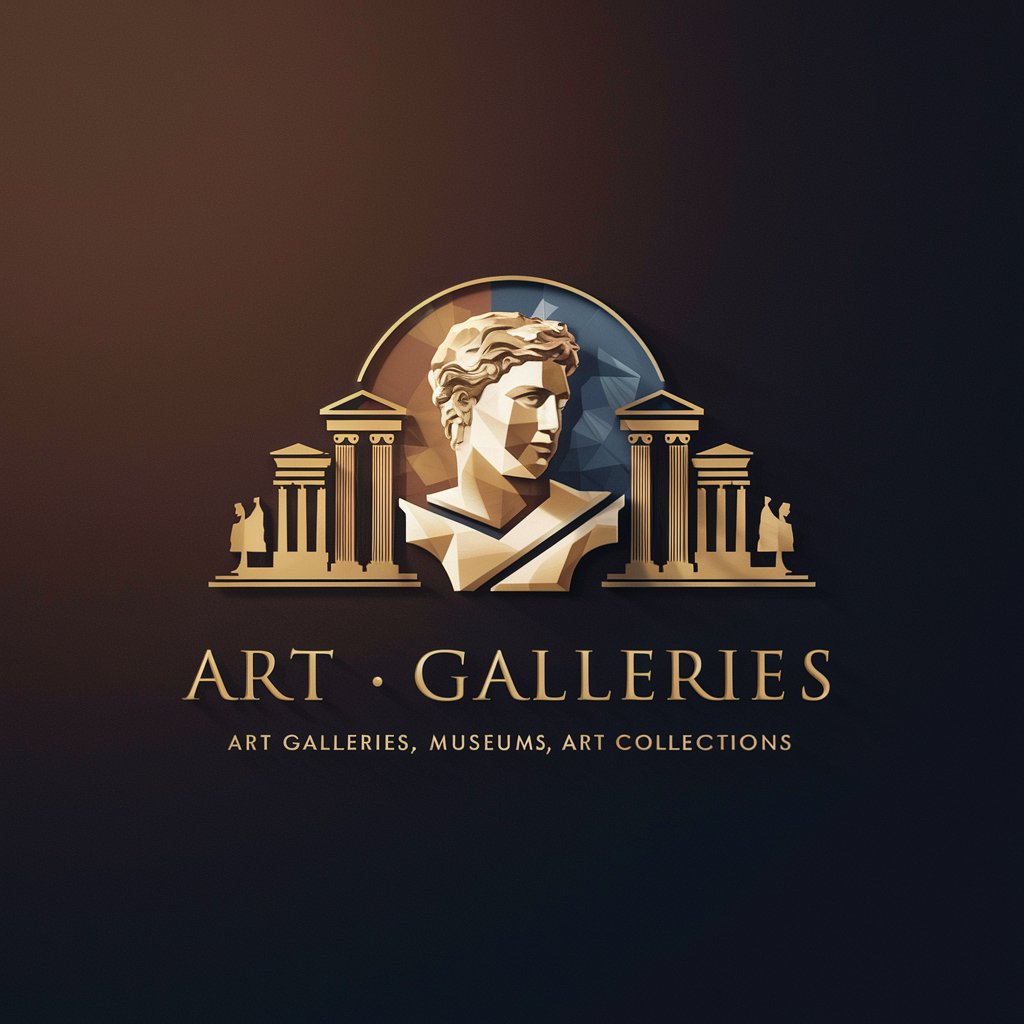Museums - Art History & Museum Guide

Welcome! Let's explore the fascinating world of art and museums together.
Explore art history with AI-powered insights
Can you explain the significance of the Impressionist movement?
Tell me about the most famous works in the Louvre Museum.
What are some key differences between Baroque and Renaissance art?
Who are the most influential sculptors of the 20th century?
Get Embed Code
Introduction to Museums
Museums is a specialized GPT model designed to enhance the understanding and appreciation of art, galleries, and museum collections. It is equipped with in-depth knowledge on a wide range of topics related to art history, including different art forms, famous artists, and notable art movements. The purpose of Museums is to provide users with detailed, factual information about artworks, their historical contexts, and the significance of various art galleries and museums around the world. By offering insights into the richness of art history and the value of art collections, Museums aims to educate and inspire users, encouraging exploration and deeper engagement with the world of art. Examples of Museums' capabilities include explaining the historical significance of the Mona Lisa, detailing the architectural marvels of the Guggenheim Museum, or exploring the influence of the Renaissance on modern art. Powered by ChatGPT-4o。

Main Functions of Museums
Artwork Explanation
Example
Explaining the symbolism and techniques behind Vincent van Gogh's 'Starry Night'.
Scenario
A user curious about the impasto technique used by Van Gogh in 'Starry Night' and its emotional impact would receive a detailed analysis, including the context of its creation and its place in post-impressionist art.
Museum Guide
Example
Providing an overview of the collections and exhibitions at the Louvre.
Scenario
A visitor planning a trip to the Louvre can learn about its must-see artworks, the history of the museum itself, and practical tips for visiting, enhancing their overall experience.
Art Movement Overview
Example
Discussing the characteristics and key figures of Cubism.
Scenario
A student studying Cubism receives comprehensive information on its origins, the pivotal role of artists like Pablo Picasso and Georges Braque, and its impact on subsequent art movements.
Artist Biographies
Example
Detailing the life and works of Frida Kahlo.
Scenario
An art enthusiast interested in Frida Kahlo's unique style and personal story would gain insights into her contributions to the Mexican art scene and how her experiences influenced her work.
Ideal Users of Museums Services
Art and History Students
Students engaged in art and history studies benefit from Museums' detailed explanations of art movements, biographies of artists, and the cultural significance of artworks, aiding their academic research and personal growth.
Museum Visitors and Enthusiasts
Individuals planning to visit museums or those with a passion for art collections can utilize Museums to deepen their understanding of exhibitions, the historical context of collections, and tips for maximizing their visit experiences.
Art Professionals and Researchers
Art professionals, including curators, art historians, and researchers, find value in Museums for its comprehensive insights into art history, detailed analyses of artworks, and updates on museum exhibitions, supporting their professional endeavors and curatorial projects.

How to Use Museums
1
Begin your art exploration journey by visiting a platform offering a free trial, accessible without the need for registration or a premium subscription.
2
Explore available resources and tools designed for art history education, museum explorations, and artwork analysis.
3
Utilize the search feature to find information on specific artists, art movements, or artworks you are interested in.
4
Engage with interactive content, such as virtual museum tours or detailed analyses of famous paintings, to deepen your understanding.
5
Take advantage of personalized recommendations based on your interests to discover new artists, styles, and historical periods.
Try other advanced and practical GPTs
Artful Innovator
Unleash Creativity with AI

Pelangi Travel Buddy
Navigate, Explore, Stay Connected

ADV Zé Burocracia
Empowering Online Sales with AI-driven Legal Support

Green Thumb Guide
Cultivating growth, crafting flavor with AI

MODELISE
Elevate Your Content with AI

CIELOのGPT
Elevate Your Social Presence with AI

出國訪查報告
Streamlining Travel Documentation with AI

Truck Rental
Your AI-powered truck rental navigator.

Boudis
AI-powered Insight into Buddhism

copywriter
Elevate Your Writing with AI

Meeting Minutes Generator
AI-powered Meeting Insights Capture

Career Navigator at BDO
Empowering Your Professional Journey with AI

Frequently Asked Questions about Museums
What types of art can I learn about with Museums?
Museums provides comprehensive information across a wide spectrum of art, including paintings, sculptures, modern art, classical art, and various art movements from Renaissance to Contemporary.
Can Museums help me find information about specific artists?
Yes, Museums offers detailed insights into the lives and works of artists from different eras, including their most famous pieces, artistic styles, and contributions to art history.
How can Museums enhance my visit to a physical museum or gallery?
Museums can provide background information, detailed analyses of artworks, and curated guides to enhance your understanding and appreciation of the collections you plan to visit.
Is Museums suitable for academic research?
Absolutely, Museums is an invaluable resource for students, educators, and researchers, offering in-depth articles, references, and analyses on a multitude of art history topics.
How does Museums use AI to improve the user experience?
Museums leverages AI to offer personalized recommendations, virtual interactive tours, and detailed analyses of artworks, making art history education more accessible and engaging.
